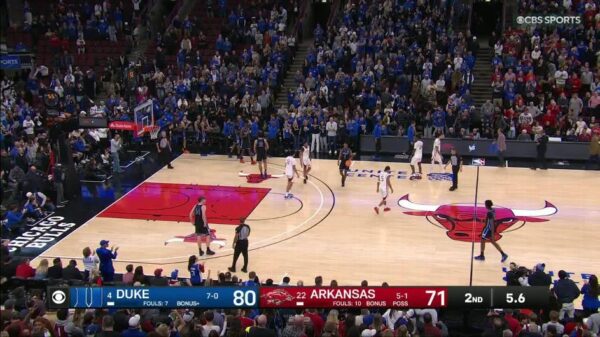BREAKING: Las Vegas is facing an alarming decline in visitor numbers, with a staggering 11.3% drop in June 2025 compared to the previous year. Approximately 3.1 million tourists flocked to the city, according to the Las Vegas Convention and Visitors Authority (LVCVA). This trend raises urgent concerns as younger generations increasingly prefer online gambling over traditional casino experiences.
Despite heavy investments in new attractions, including the highly publicized The Sphere and various sports events, Las Vegas is struggling to capture the attention of younger audiences. Robby Starbuck, a conservative commentator, highlighted that the city’s outdated image—centered around slot machines, showgirls, and nightlife—fails to resonate with a demographic that prioritizes digital engagement and healthy lifestyles.
The shift in gambling habits is stark. The U.S. online gambling market was valued at $12.68 billion in 2024, reflecting a significant change in how individuals engage with gaming. With the convenience of smartphones offering numerous legal gambling options, many under-40 players find visiting physical casinos less appealing.
Another critical factor is the evolving social dynamics among younger generations. Starbuck noted that today’s youth prefer forming friendships online rather than seeking traditional face-to-face interactions, further diminishing the allure of Las Vegas’s in-person entertainment model.
Moreover, drinking habits are also shifting. A recent Gallup poll revealed that 38% of adults under 35 abstain from alcohol entirely, a stark contrast to older generations whose Las Vegas visits often revolved around heavy drinking. This change is reshaping the way hotels and casinos cater to their guests.
The impact on the local economy is evident. Hotel rates average at $163.64 per night, marking a 6.6% decrease, while occupancy rates have dropped by 6.5%. Plans for a new 43-story resort on the Strip have stalled, leaving the site as an empty parking lot with no immediate plans for development.
Starbuck emphasizes the urgent need for Las Vegas to rebrand itself to attract families and future visitors. Without innovative ideas and a shift in strategy, he warns that younger audiences may continue to overlook the city, risking its status as a premier entertainment destination.
As Las Vegas grapples with these challenges, the urgency for change has never been greater. Industry leaders must act swiftly to adapt to the evolving preferences of younger visitors or face an uncertain future.







































































